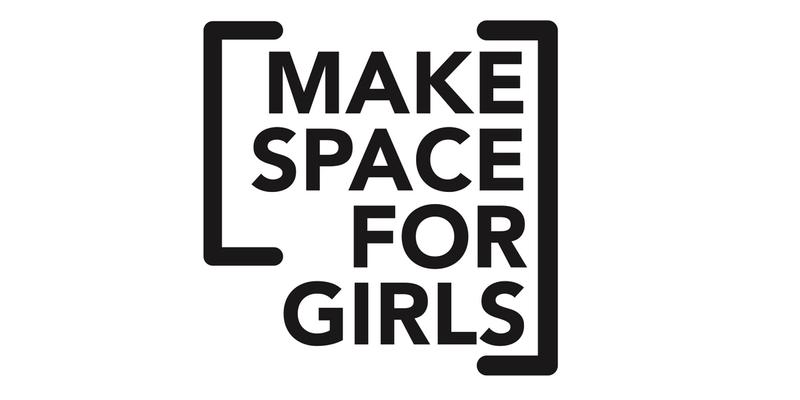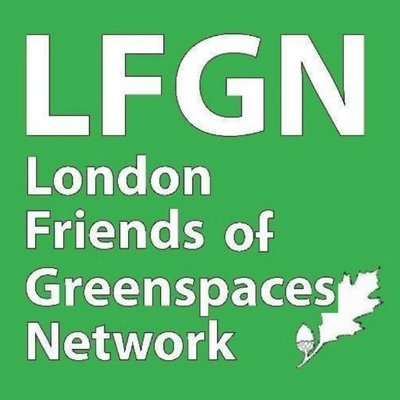An article from Make Space for Girls
Introduction
“Why would I go to the Park, there’s nothing there for me”- Lily age 14.
As Friends of Parks Groups know, parks have amazing potential to improve our health, well-being and sense of self. But is everyone getting these benefits?
Parks are certainly great for younger children, visiting with their carers. But what happens as they get older and start to branch out on their own? Where do they play? Is Lily right when she says there’s nothing there for a fourteen year old girl?
The data says that she is. Currently, most facilities provided for teenagers, such as skate parks, bike tracks, basketball courts and fenced pitches - also known as multi use games areas or MUGAs - are predominantly used and dominated by boys.In practice, teenage girls don’t get a look in, and when these spaces are designed, the voices of teenage girls are seldom heard.
Make Space for Girls wants better designed and more inclusive parks. We want the voices of teenage girls to be at the heart of solving this problem, through engagement, raising the profile of the issue, research and co-producing spaces that work for them.
What does the data tell us about the problem?
We do know that skateparks don’t serve teenage girls well.Data from Skateboard GB tells us that 85% of skateboarders are male and 80% are under 18. When the Friends of Roundtree Park in York talked to girls aged 10-17 they found that 90% of those who were into skating did not feel comfortable on their local skatepark. A park on the south coast of England asked girls what “easy win” would make them use the park more: the answer was a new entrance so they didn’t have to walk past the skate park.
MUGAs are another very common provision for teenagers in parks. To date there has been very little systematic collection of data about the use of MUGAs, although one of the very few bits of research on MUGAs identifies them as: ‘places for young men to engage in active and exuberant forms of play’. And simply observing these spaces in action shows that they are dominated by boys and young men.
The other common teen provision is outdoor cycle/BMX provision. British Cycling doesn’t collect data broken down by gender for grass roots participation, but research on similar sports like mountain biking show that it is male dominated.
What do teenagers tell us they want?
In 2022 Women in Sport and Yorkshire Sport collaborated to investigate the barriers faced by teenage girls to using parks and as part of this asked just under 400 boys and girls aged 13-15 what would make them more active in the park. The results are below:
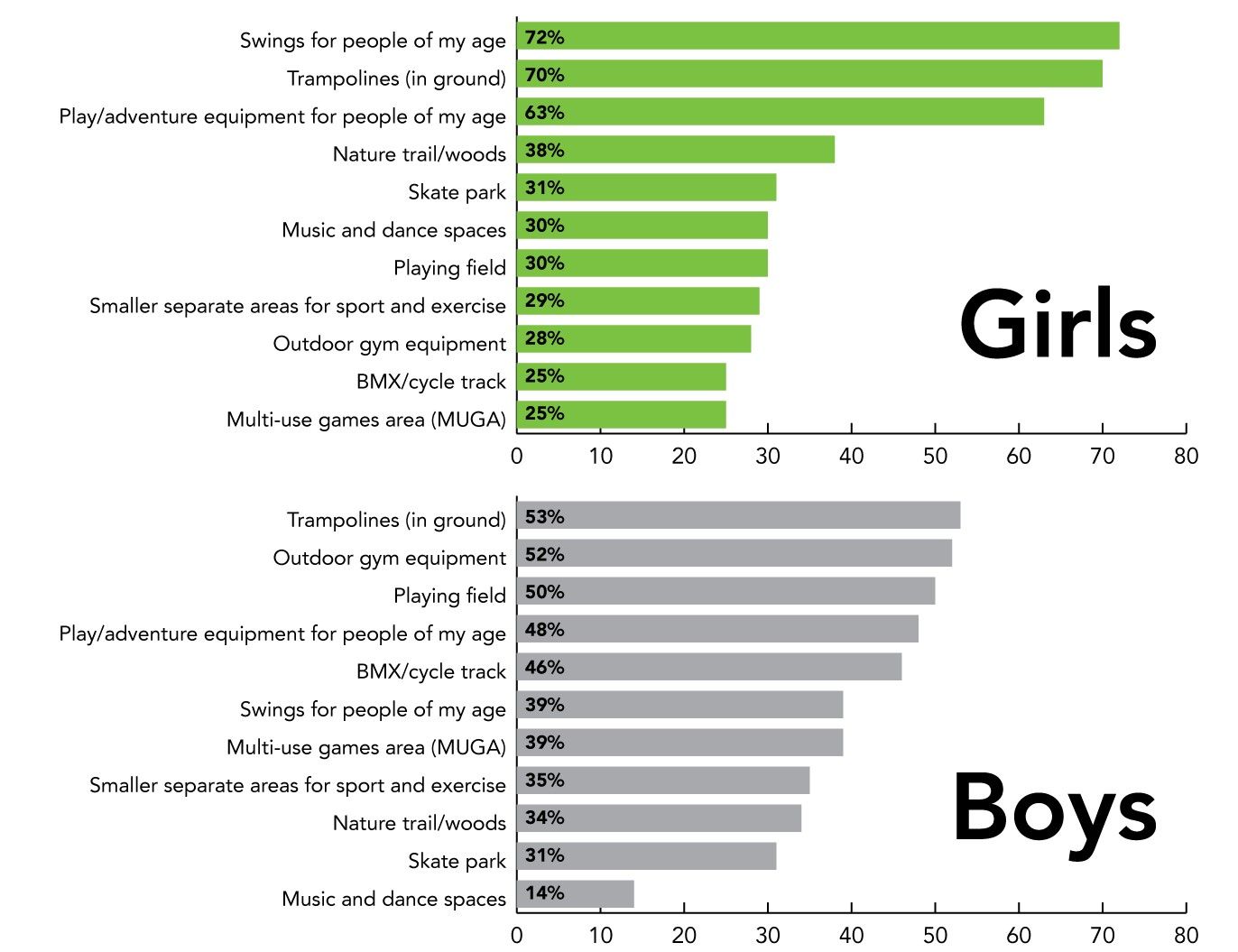
Swings, trampolines and play/adventure equipment “for people my age” scored the highest with girls. And consistent with what we see in parks, skateparks and MUGAs scored badly. But perhaps more surprising was that MUGAs didn’t score that highly with boys- in fact they scored the same as swings. And for boys and girls, skateparks scored lower than nature trails/woods. With many councils declaring a climate change emergency, what is the environmental cost of pouring tonnes of concrete into a green space?
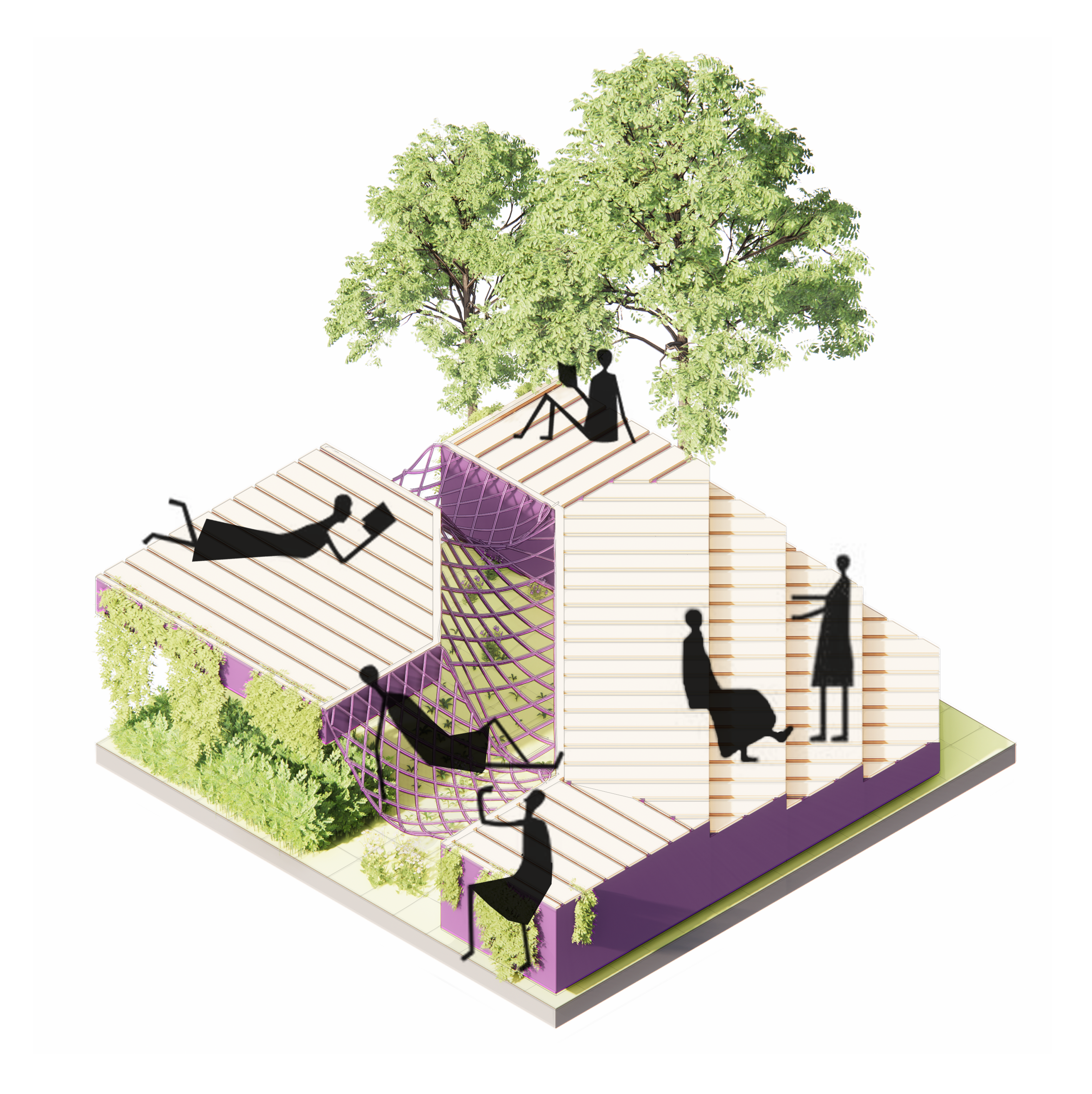
Why is change needed?
We say there are 4 reasons to change:
- Fairness- why shouldn’t girls and young women have facilities in parks that meet their needs?
- Health- we know how being physically active and being in contact with nature supports our mental and physical health, but at the moment girls are not getting these benefits.
- Safety- this is a huge barrier to girls using parks; we believe that girls should grow up knowing they have a right to feel safe in parks;
- The law: Article 31 of the UN Convention on the Rights of the Child creates a right to play for all children and young people up to the age of 18. And Public Sector Equality Duty in the Equality Act 2010 requires local councils to proactively consider addressing the disadvantage that girls face when it comes to teen provision in parks.
What does change look like?
We want to create spaces that are more inclusive: not only welcoming to teenage girls, but also for non-binary young people and the boys for whom current teen provision holds no appeal. This change doesn’t mean painting things pink or separating boys and girls. And it doesn’t mean getting rid of MUGAs and skateparks. These should only be a part of the teen provision - they cannot continue to dominate our parks in the way that they currently do, and we need to think about designing and activating the ones we have a bit differently.
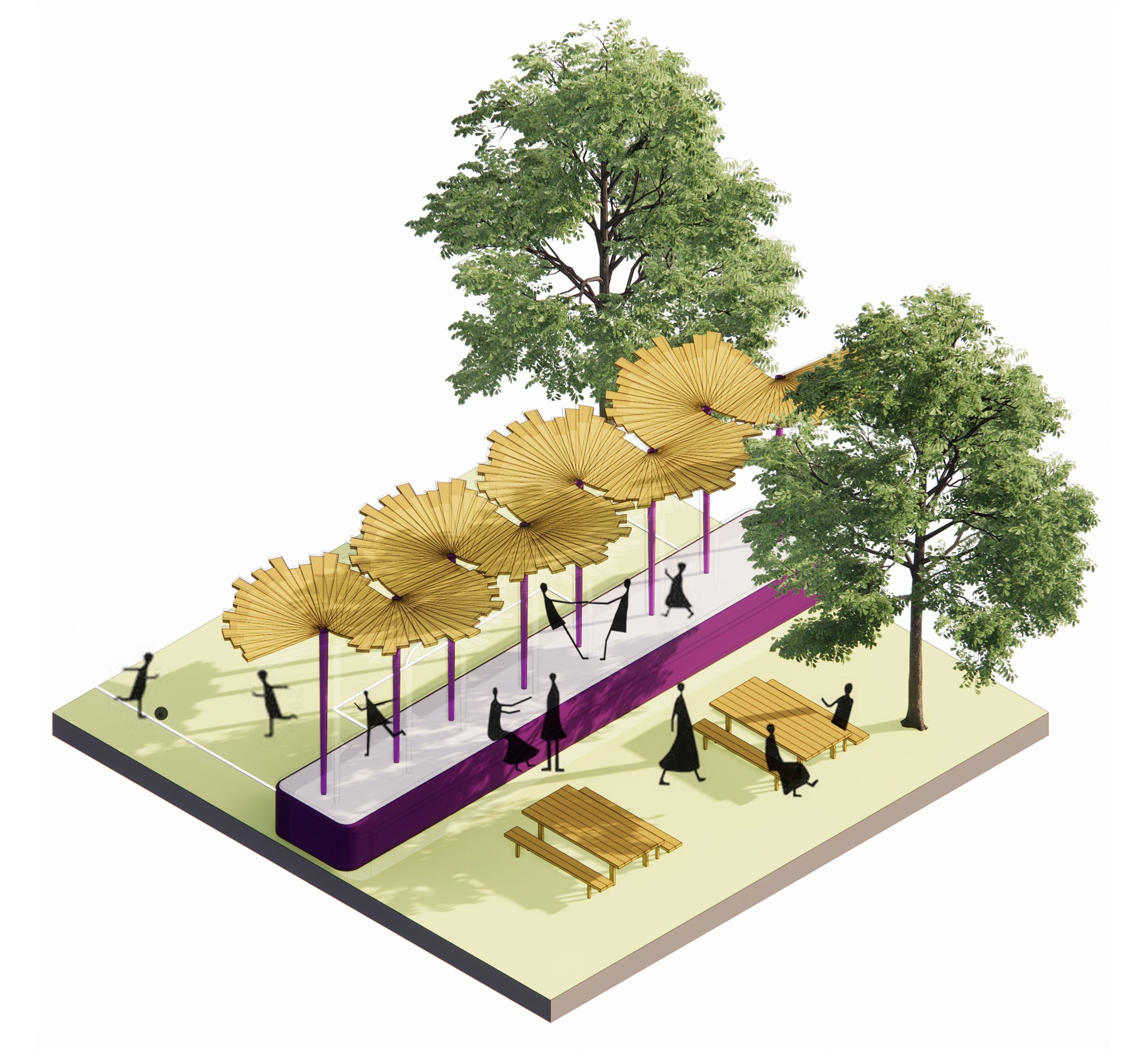
Find out more
We have put a selection of information and resources on our website, including a short presentation on You Tube which follows very closely the presentation that we did for LFGN on 13th February.
If you want to dive into the data, then we have just reissued our Research Paper; and Friends of Groups may find the pages for Councils have some useful pointers. There is a great blog article by Friends of Rowntree Park about how they stated to engage with teenage girls and much more material on engagement and consultation.
Finally, we have lots of Case Studies from outside the UK showing spaces that are more welcoming to teenage girls. You may well ask why we don’t have any case studies from the UK: the answer is that at the moment we haven’t been able to find any. We are working in a number of locations and hope that over the next year or so, we will have some examples in the UK. But in the meantime if you do come across any great examples (or have anything else to chat to us about) please drop us a note on our Contact Form. We’d love to hear from you.
